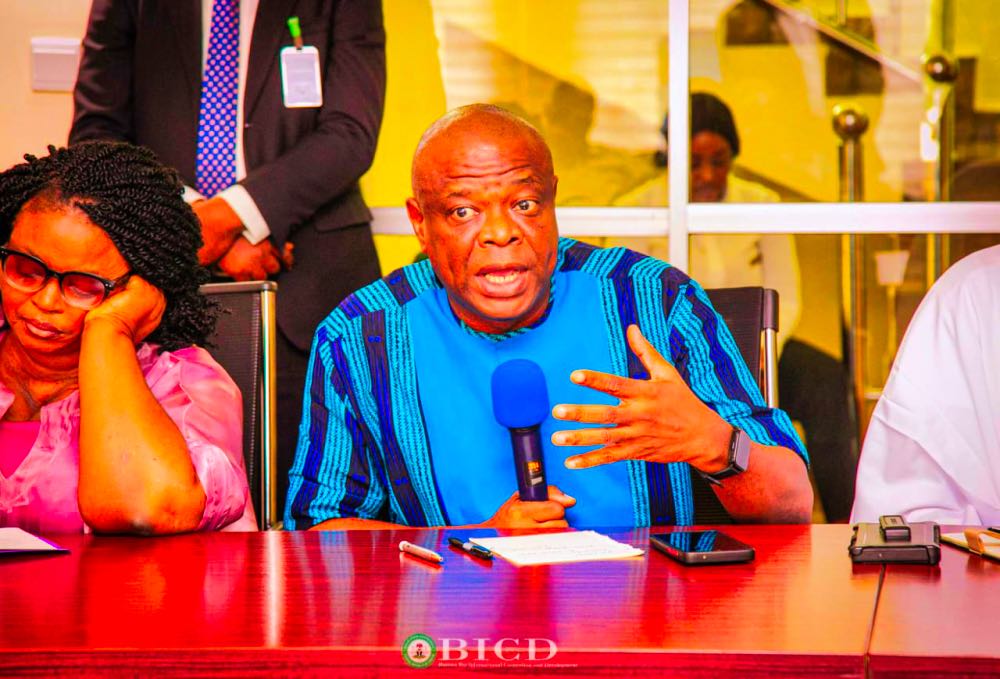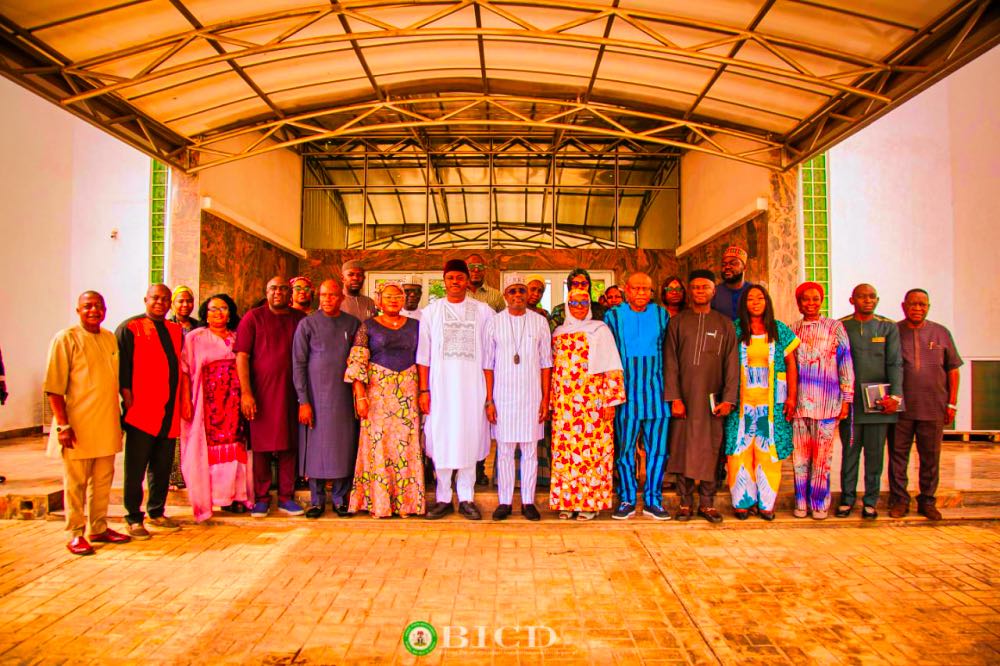

This initiative was led by ONSA to the North Central geopolitical zone, in collaboration with PAVE Network on Tuesday, May 2025
Introduction:
The Partnership Against Violent Extremism [PAVE] Network, is a network of civil society organisations that are engaging with, and programming on Preventing And Countering Violent Extremism (PVCE) in Nigeria. The network is registered with the Corporate Affairs Commission [CAC] as an Incorporated Trustee (CAC/IT.N0 119408), it is recognised by the Office Of The National Security Adviser (ONSA) and included in the PCVE Policy Framework And National Action Plan [PFNAP] 2017, as the coordination platform for civil society engagements with PCVE.
The network thus aims to enhance coordination and collaboration among and between state and non-state actors in PCVE interventions in Nigeria.
ActionAid Nigeria received a grant from the Global Community Engagement And Resilience Fund [GCERF] to support PAVE Network and her strategic partners to drive advocacy towards the adoption, adaptation and mainstreaming of the PCVE PFNAP, into state level policy frameworks and strategies by State governments in North East and Nigeria as a whole.
This PCVE Scale Up project is centered around the establishment of PCVE Knowledge Innovation And Resource Hub [KIRH], through which technical support to subnational governments can be channeled towards scaling up and mainstreaming PCVE in in line with the whole of government, whole of society strategic approach envisaged by the PCVE PFNAP.
The High-Level Stakeholders Advocacy engagements with the Benue State Government, in the North Central is an integral part of the PAVE Led PCVE Scale Up project, and are mechanisms through commitment of state governments [state actors] are to be obtained towards realising the objective of mainstreaming PCVE into state policies and strategies.
The PCVE KIRH:
The PCVE KIRH, is the mechanism through which envisaged technical support in the PCVE Scale Up project will be channeled to respective states, basically through the platform of the Multistakeholder, inclusive and representative Technical Working Groups [TWGs] expected to be established by the respective state governments.
PAVE PCVE KIRH Objectives
- Serve as a repository of knowledge, information, and expertise on PCVE: The PCVE KIRH will gather and disseminate a wide range of resources, including research findings, policies, strategies, and project reports, to enhance understanding and implementation of effective PCVE approaches.
- Facilitate PCVE knowledge generation, dissemination, and management: The PCVE KIRH will actively support the generation of new knowledge through research, encourage knowledge-sharing among stakeholders, and provide effective management and organization of PCVE-related information.
- Support quality assurance and quality management in PCVE interventions and programming: The PCVE KIRH will develop and promote quality standards, guidelines, and best practices in PCVE interventions to ensure the effectiveness and impact of various initiatives.
- Provide technical support services to actors in the PCVE ecosystem: The PCVE KIRH will offer technical support and consultancy services to state and non-state actors, communities, the private sector, and other relevant stakeholders engaged in PCVE interventions and programming.
- Enable space for critical reflection, shared learning, adaptation, and innovation: The PCVE KIRH will create an interactive and accessible digital and physical platform that encourages reflection, learning, and innovation among PCVE practitioners and experts, fostering collaboration and skills development.
Background and Context:
Towards this end, a high-level multi-Stakeholders advocacy delegation, including state and non-state actors, and led by the Office Of The National Security Adviser (ONSA), had a one day engagement with State Actors from the Executive and Legislative branches of government, and including security sector leaders, in Benue State.
- Purpose Of Visit And Engagement
The Purpose of the High-level Strategic Stakeholders Advocacy Engagement in Benue State is to meet and have an audience with Strategic State And Non state Actors in Benue State on the following:
- Discuss overview of security situation in the state;
- Get the state government's buy-in to integrate PCVE into security processes and initiatives in the state - either through development of PCVE specific State and Local Government Action Plans (SAPs & LAPs); or through the review and Mainstreaming of PCVE into existing state Security and Development Plans and Strategies;
- Get the buy-in of the State Government to commit resources to PCVE in the state through appropriation via the State Assembly;
- Get the buy-in of The State government and other Stakeholders to the ongoing review of the PCVE PFNAP processes;
- Get the buy-in of the State government to establish a multi Stakeholder Technical Working Group (TWG) to lead the process of the review and Mainstreaming of PCVE into state security and development plans and strategies;
- Get the commitment and buy-in of the State Government towards the ongoing national consultation processes towards developing an harmonized National DDRR strategy for Nigeria
2. Meetings with Other Stakeholders:
The delegation will also meet and engage with other Stakeholders, in particular, the State Assembly, relevant MDAs, as well as with Civil Society.
3. Meetings with Other Stakeholders:
- State Governor's go ahead for the review and Mainstreaming of PCVE into State Level Security and Development Plans and Strategies;
- State Governor's directive on the establishment of the Technical Working Group to lead the review and Mainstreaming processes;
- State Assembly's commitment to work with the State Executive to appropriate funds for approved PCVE interventions;
4. Team Composition
The delegation making the High-level Strategic Stakeholders Advocacy Engagement Visit is made up of
- Representatives from NCTC ONSA, led by the DPCVE
- Representatives of PAVE Network - Steering Committee & PCVE KIRH Team
- Representatives of International Alert, led by the Country Director.

